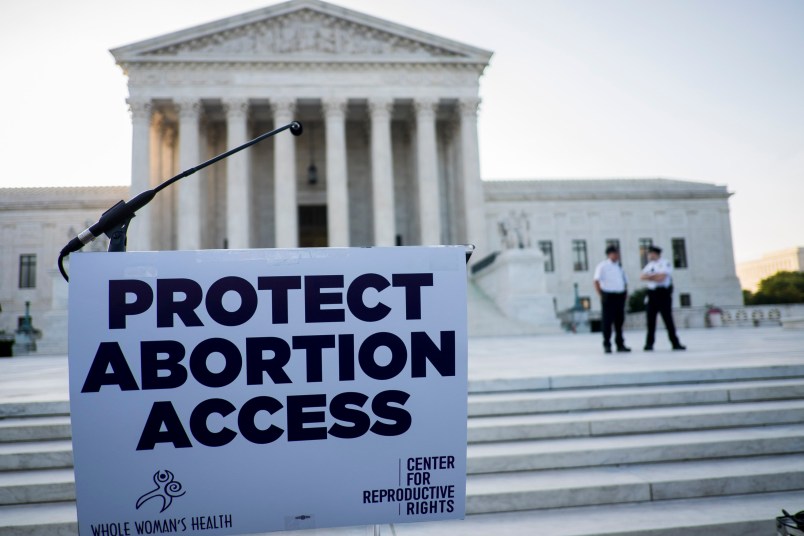DES MOINES, Iowa (AP) — The Iowa Supreme Court on Friday blocked a law requiring a 72-hour waiting period before a woman can get an abortion.
The court ruled that the law violates the Iowa Constitution, siding with a lawsuit filed by Planned Parenthood of Iowa and the American Civil Liberties Union of Iowa. The organizations sued the state over the law approved by lawmakers last year.
A district court judge upheld the waiting period in September, but the Supreme Court blocked its implementation until it could hear arguments from both sides.
The waiting period is part of a law banning most abortions after 20 weeks of pregnancy. The 20-week ban is in effect and isn’t part of the legal challenge.
Planned Parenthood argued that the court “should join the high courts in numerous other states that have found that the right to choose abortion warrants greater protection than has been afforded under the federal Constitution.” The organization said supreme courts in 12 states had made such rulings.
The Iowa Supreme Court has recognized privacy as a fundamental right in previous cases. Planned Parenthood argued that the court should conclude, in this case, that abortion was a core privacy right and should be treated like other fundamental rights under the Iowa Constitution.
“Iowa has chosen to impose more severe burdens on women who choose abortion than almost all other states in violation of both the Iowa Constitution and federal law,” the group’s attorney, Alice Clapman, argued in court arguments.
Clapman said women who seek abortions in Iowa “already make careful decisions. They already contend with massive obstacles in carrying out their decision.” The mandatory waiting period, also referred to as the informed choice provision, would make those obstacles far worse, she wrote.
Iowa Solicitor General Jeffrey Thompson, who is defending the law for the state, argued that protecting unborn life is a state interest of the highest order. He said choosing to terminate a pregnancy is not a fundamental right under the Iowa Constitution, and that the waiting period provides time for women to consider information about the procedure that abortion providers are required to provide, including an opportunity to view an ultrasound or hear a fetal heartbeat.
“The informed choice provision does not remove the ultimate decision from the woman. Rather, it reflects the hope of the legislature that after receiving the information and taking some time to consider it, some women will choose to continue a pregnancy that they might otherwise have terminated,” he wrote in court documents.
Iowa lawmakers earlier this year also passed a bill prohibiting abortions after a fetal heartbeat is detected. That law also is on hold pending a legal challenge.



